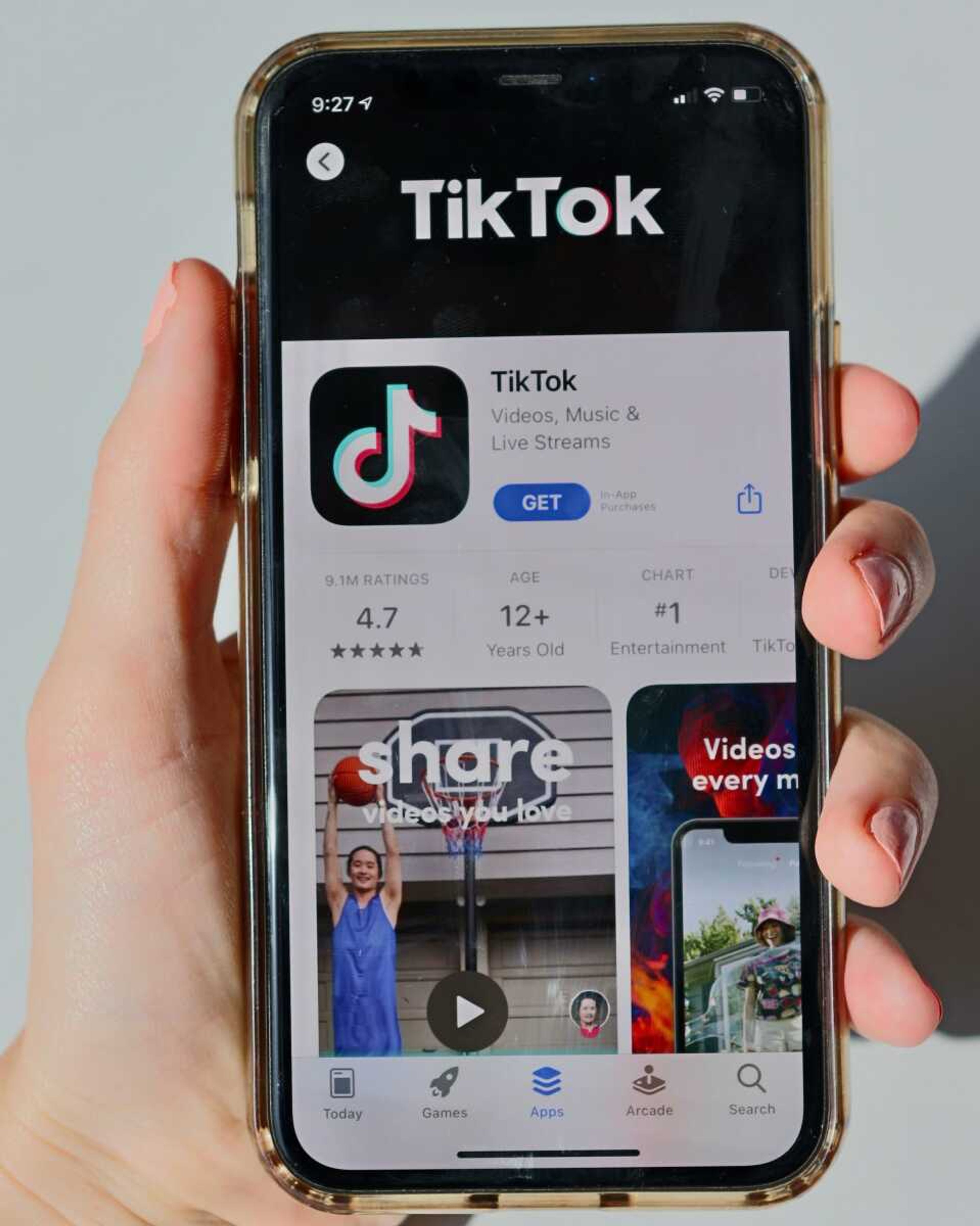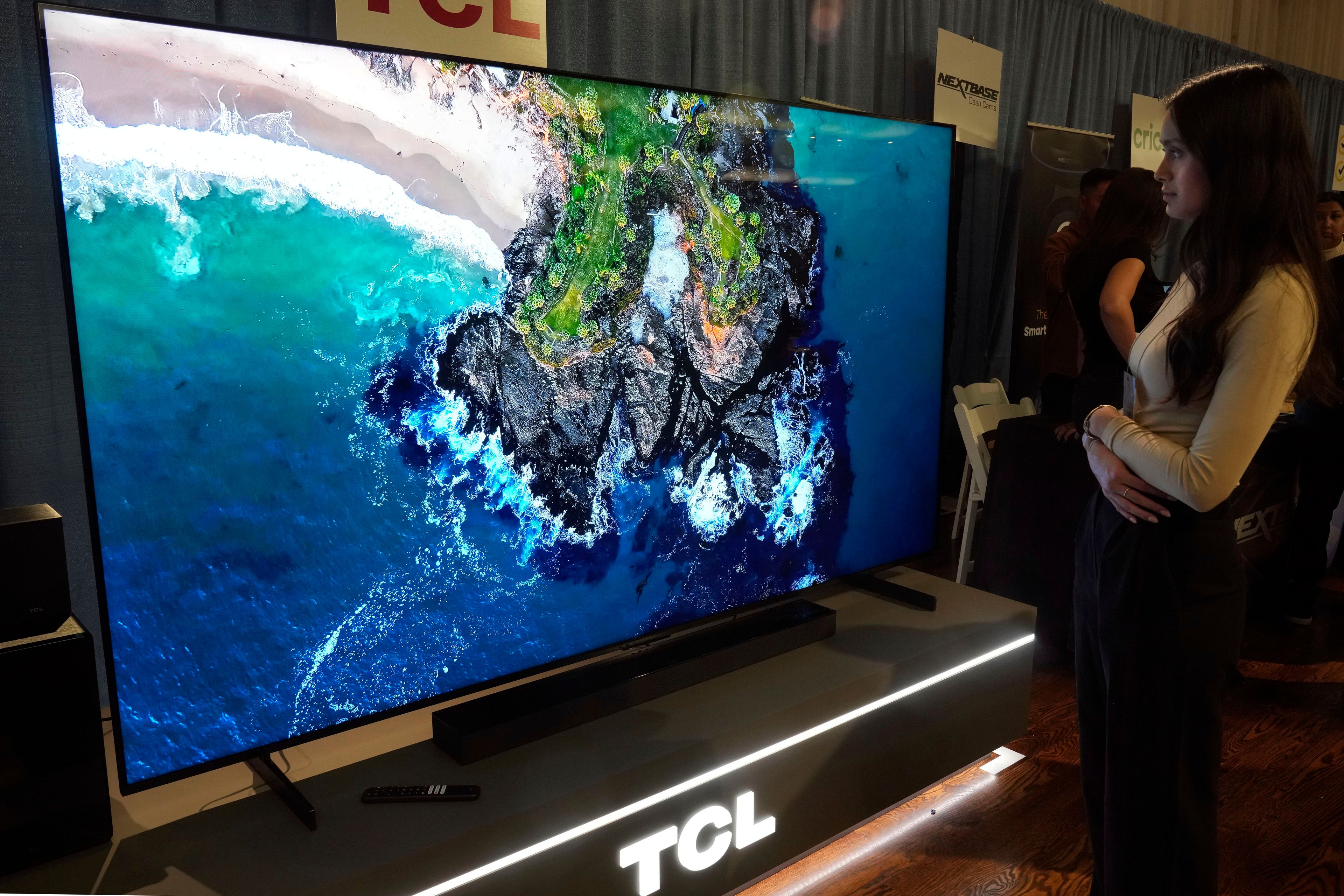TikTok — SEMO Mass Media professor weighs in on controversial app
The popular social media app and video sharing service TikTok has been in the news frequently in the past month and continues to be a source of controversy. n March 23: TikTok CEO Shou Chew told a U.S. House panel TikTok is independent from China despite widespread concern from lawmakers that TikTok's data collection is being turned over to the Beijing government...
The popular social media app and video sharing service TikTok has been in the news frequently in the past month and continues to be a source of controversy.


- March 23: TikTok CEO Shou Chew told a U.S. House panel TikTok is independent from China despite widespread concern from lawmakers that TikTok's data collection is being turned over to the Beijing government.
- March 28: Missouri U.S. Sen. Josh Hawley tried and failed to advance a bill banning TikTok from operating in the U.S., referring to the service as "digital fentanyl," arguing TikTok may give Chinese officials access to data from 150 million American users.
- Tuesday, April 4: New York Times reported Britain's data protection authority has slapped TikTok with a fine equivalent to $15.9 million, alleging the app has inappropriately allowed 1.4 million children younger than 13 to use the service.
Sarah Cavanah, Ph.D., 44, is an assistant professor in Mass Media on Southeast Missouri State University's Cape Girardeau campus. The Southeast Missourian invited the native of Marceline, Missouri, to give a brief primer about TikTok. Cavanah is teaching a class this semester at SEMO titled "Social Media Content Creation and Strategy".
It seems many people have heard of TikTok but may not know what it is. Accurate?
I think that's true. One of the things that scares people is (TikTok) has grown very quickly, faster than any other social media app in terms of acquiring users. It depends whose numbers you count but a data point I've seen suggests between one-third and one-half of Americans use TikTok. There is so-called "active" social media, in which users share a lot about their own lives, where people really connect with other people — such as Facebook and Instagram. There is also "passive" social media such as TikTok. Most TikTok users never share. What they're doing is taking in material produced by content creators. So, in that sense, TikTok is more like television or YouTube where people passively watch content. Twitter is also passive. Most people on Twitter never tweet, they retweet.
I'm not on TikTok but TikTok videos show up in my Facebook feed. How does that happen?
We call that "cross platform sharing" and all the platforms out there make it really easy to do. For example, if you're on the TikTok app, you can hit a button and share to Facebook and that content will go straight over to your personal Facebook account.
I see this fairly often in my Facebook feed, two or three young people dancing to a song. A family member looked over my shoulder one day and told me, "Oh, that's a TikTok video."
Dance trends were one of the early stylistic things that happened on TikTok. You can tell the source pretty readily because TikTok is very good about branding its material. If the video was recorded on a TikTok video editor, TikTok's logo is going to show up even if seen on a different platform, such as Facebook.
The knock on TikTok, as I understand it, is the app is allegedly a front for the Chinese government to gather information on Americans. Any merit to the allegation?
It's complicated. There are several concerns raised about TikTok. First, TikTok is owned by a Chinese company. Companies are required to turn over information to the government if (Beijing) asks for it. In most of the western world, this doesn't happen, but in China, the information turnover is required. The data being collected is probably the same kind of data all social media apps collect — such as how much time a user spends on certain videos or where a user might be physically at a particular point in time. For TikTok to know where a user is gets at the user's travel patterns. In our system, the collected information is used to tailor advertising relevant to that user. It's one of the advantages digital media has over traditional media ... you have this highly tailored environment. This is changing, though. Google, for instance, has kind of shut down "cookie" collection, which limits data transmission. Apple has really cracked down on what apps do on phones. It's hard to say, especially on iPhones, how much data TikTok is getting but it is a concern. This is why U.S. government phones ban TikTok so that the travels of our officials can't be tracked by the app. How dangerous is this? I really couldn't say.
A second concern has to do with economic competitiveness. The Chinese government, as I said before, requires all apps to play by its rules, which means information gleaned must be turned over, and those apps can't operate within China unless they agree to do so. If American apps aren't allowed to work in China, why should Chinese apps get free rein in the U.S.?
A third issue has to do with content. All social media apps use complicated algorithms designed to keep you on their app as long as possible to deliver more advertising to the user. People who use TikTok tend to use it for longer periods of time than really anything we've seen in terms of social media. TikTok is very good at engaging people and getting them to stay on the app. I've seen at least one credible research project showing it's possible China has been pushing more antisocial content at American users of TikTok, particularly adolescent ones. Stealing cars, for example. In China, though, users of the app were given content encouraging helping your community.


Josh Hawley, Missouri's senior U.S. senator, has made a strong statement about TikTok, calling the app "digital fentanyl." What's your view of Hawley's rhetoric on this point?
To me, I think this is probably really overstated. Anytime a new media comes in, some people assume it's very powerful and can really change the way people think and act and feel. We've seen this historically over and over again. There was a fear of radio's impact in the 1930s with the "War of the Worlds" broadcast. When I was a kid in the 1980s, you heard how MTV was destroying us. This is not to say the media doesn't have effects.
With the level of concern raised in multiple quarters about TikTok, give us a sense of your personal attitude about the app and its current popularity?
Personally, I do get concerned about a different kind of political ideology controlling an information system. Censorship is bad (but) there shouldn't be somebody putting their finger on the scales when it comes to information. I do worry TikTok could be putting its finger, so to speak, in terms of algorithms and what the app pushes out to people. I can't remember who it was but one senator said if we took TikTok away, something would rise up, a new app, to take its place and that's probably true. China does have a very restrictive information system and I would not want that to affect (the U.S.) system, which I think is a healthier approach. TikTok has pitched the idea that all American data will not leave the U.S., that it will be on information servers in Austin, Texas, "Project Texas", it is being called. One critique of the idea is data is pretty much accessible worldwide, no matter where it may be physically housed. You might be able to build a "backdoor" to access the information. Honestly, we are in a heightened state of tension with China currently. We want to give China the benefit of the doubt and ideally we would have a global market system where everybody could operate and compete together, but I just don't know that this is the situation right now.
Is there anything you'd like to add about TikTok?
TikTok has been great for small businesses. For entrepreneurs, TikTok is a phenomenal way to reach audiences, and if they don't have the ability to use this app, it will hurt their ability to promote their businesses. At the end of the day, you've got to balance the good with the bad.
Do you want more business news? Check out B Magazine, and the B Magazine email newsletter. Go to www.semissourian.com/newsletters to find out more.
Connect with the Southeast Missourian Newsroom:
For corrections to this story or other insights for the editor, click here. To submit a letter to the editor, click here. To learn about the Southeast Missourian’s AI Policy, click here.








